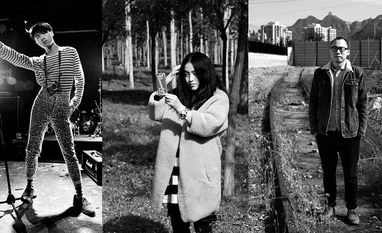Wish Lanterns: Young Lives in New China
Author: Alec Ash
Publisher: Picador
Pages: 320
Price: Rs 499
About 31 years ago, thousands of students of Peking University marched out of their historic campus and covered the short distance to Tiananmen Square in Beijing to commemorate the death of Hu Yaobang, a reformist official who had been purged by the Communist Party. For a month, the students laid siege to the city square, demanding better government and democracy. They were joined by labourers and other dissident groups, and soon hunger strikes and other demonstrations started. Having allowed the protests to simmer, the Communist Party sent in the army, resulting in a bloodbath on June 4, even as the world watched. Now, even a mention of the date is a taboo in the country — dissidents refer to it as May 35.
It’s not that youth don’t know about the date, but they choose to remain silent about it, writes Alec Ash. They “knew full well what the day signified — they just had other priorities. Too young to remember the rebellious mood of 1989, they face intense competition for success in an environment where there is more to gain from silence and everything to lose from speech.” In this book — Ash’s first — the Beijing-based writer traces the lives of six young Chinese men and women, born in the mid-1980s to early 1990s. He calls them the post-Tiananmen generation, which is also his and my generation.
The characters in his book are: (1) Dahai, or Yu Hai (b. 1985), a military child and netizen; (2) Xiaoxiao, or Lui Xiao (b. 1985), an entrepreneur; (3) Fred (b. 1985), a PhD; (4) Snail or Miao Lin (b. 1987), an internet gaming addict; (5) Lucifer, or Li Yan (b. 1989), a singer; and (6) Mia, or Kong Xiaorui (b. 1990), a fashionista and former punk. They represent a cross-section across geography, cultures, political affiliation and consciousness and economic entitlement. To an outsider, they reveal the heterogeneity and subtlety often missed in what might seem like a homogenous, claustrophobic nation. Writing about Dahai, Ash says, “His was the generation with no memory... of Mao. A generation of only children born to a country changing as fast as they were.”
They are also products of China’s controversial One-Child policy, which began in 1979 and was formally phased out in 2015. While it managed to check the burgeoning population of the country — and helped transform it into an economic superpower — its economically adverse effects are now emerging. Ash writes, “...in early years there are four grandparents and two parents to shower attention on one child, in adult life this reverses so that an only child has to provide for two ageing parents and four retired grandparents.” In a country that is often the driver of global economic growth, the economic well-being of individuals citizens are not really guaranteed. Sometimes, the pressures, as Ash writes, can feel like a massive burden — there’s even a slang for it: yalis-handa, homophone for Alexander the Great.
Is it then a surprise that in China, millennials — as they are called elsewhere — have little interest in a failed movement, or even political consciousness as such? “What do we want?” a student leader tells Ash. “Nike shoes. Lots of free time to take our girlfriends to a bar. The freedom to discuss an issue with someone. And to get a little respect from society.” They already have all this — what’s the point in being nostalgic or outraged by something that’s hardly helpful and potentially life-threatening? Like elsewhere, Chinese millennials are criticised by those older for being too self-centred, even selfish. But this is also the generation that has lived through the uncertainties following the fall of the World Trade Centre in 2001 and the global economic crisis of 2008.
As Ash finds out, they have also been routinely put through a social and education system that encourages obedience and amnesia, and punishes free thinking. School is the first step of regimentation: “When Xiaoxiao started middle school, everything changed. Overnight, the pampering she was used to transformed into the true legacy of the only child generation: crippling study pressure.” Along with languages and sciences and sports, students are also indoctrinated in politics. “Patriotic education — a campaign launched in 1991 in reaction to Tiananmen protests — is compulsory.” Over and over, students are taught about the political legacy of Mao Zedong and the economic policies of Deng Xiaoping till they are numbed into believing it.
Ash, who arrived in Beijing in the Olympic summer of 2008, self-consciously keeps himself out of the narrative: “I prefer not to intrude into their stories, having arrived so late in them.” The objectivity it infuses the narratives — at once journalistic and anthropological — allows the protagonists space to explore their stories fully. The book is a close cousin of Svetlana Alexievich’s Voices from Chernobyl or Zinky Boys, though the writing is not yet of the same standard. But this is Ash’s first book — and one is hopeful of great things from him.
CATCH ’EM YOUNG: (From far left) Dahai, a military child and netizen; Xiaoxiao, an entrepreneur, and Lucifer, a singer. Photo Courtesy: Lu Ran & Christopher Cherry













)
